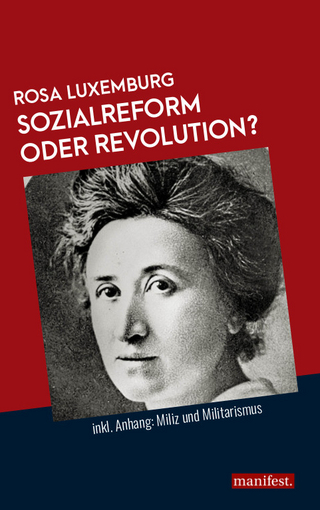
The truth behind Germany¿s intervention in Afghanistan: A case study on the ground
Anchor Academic Publishing (Verlag)
978-3-95489-287-7 (ISBN)
Ali Fahimi was born in 1987, immediately after his family's arrival in Germany, who sought political asylum from Afghanistan. Ali Fahimi got a Bachelor degree in Business Administration at the Nordakademie in Elmshorn. Driven by its interest for different cultures and economic systems, he lived, worked and studied in Havana and New York. Due to his passion for world politics the author did his master degree in Global Political Economy in London with focus on the war in Afghanistan. To find out the truth about Germany's interests in Afghanistan Ali Fahimi went on a research trip to Afghanistan in 2013. His political-economic knowledge together with his Afghan-German background motivated him, and permits a unique insight into Germany's role in this war.
Textprobe:
Kapitel 2, Examination of Germany s hypothesis:
As demonstrated above the most dominant reason in the official debate about Germany s reasons for intervening and engaging in Afghanistan has been to combat international terrorism for the sake of Germany s own security, which implies the aim of decreasing the threat of terror attacks in Germany. After a clarification about definitions that will be used in this book and an introduction into the AQ organization the claims made by the German government will be examined in detail.
2.1, International Terrorism:
There is no universally accepted legal or academic consensus about the definition of terrorism. Nevertheless, different authors underline common aspects. The use of violence by a non state-actor to create fear for a political aim can be identified as the main characteristic (Laqueur, 1996, p. 24; Lutz & Lutz, 2008, p. 9; Shea, 2009; Bellamy, 2008, p. 28). In addition to that, Shea (2009) points out that the act has to carry symbolic value as well as follow the goal to mobilize the terrorist s community. Bellamy (2008, p. 28) includes that civilians have to be the target. However, only Fromkin underlines that the uniqueness of the strategy lies in this: that it achieves its goal not through its acts but through the response to its acts (Fromkin, 1975, p. 692). Fromkin s notion implies the major power of terrorism as well as its main weakness due to its passive role in the dependence from the reaction of the state. This essay agrees with the validity of these definitions and considers terrorism as international terrorism when it is practised in foreign countries by terrorists who are not native to that country.
For this book the security threat for Germany in the context of the intervention in Afghanistan and the aftermath of 9/11 can be narrowed down to Islamic terrorism or Islamic extremism. In the past, when defining Islamic extremism the focus lay on strict interpretations of Islamic teaching especially, those from the Quran or from Hadiths of the prophet Muhammad. During that time, many scholars had referred to the promotion and expansion of Islam through Jihad and the implementation of Sharia Law in Islamic societies. In the contemporary debate the term stands for a conservative view of Islamic ideology, which aims to reconstruct a society as it was during Muhammad s period. Here the Islamic religion plays the central role and the state and society are subordinated because of the introduction of the Sharia law, which consequently means for the majority also stopping and combating the influence of non-Islamic states in Muslim lands (Farmer, 2007). The official reason why the US started the intervention in Afghanistan in 2001 was to defeat AQ. As probably the biggest and most famous Islamic terrorist organization AQ and its affiliates underlie such an Islamic extremist believe and will be used in the context of the war in Afghanistan as the main representative terrorist organization in this book.
2.2, AQ & Taliban:
According to the former US Director of the Central Intelligence Agency (CIA) Leon Panetta, in 2010 the estimated number of AQ fighters in Afghanistan was about 50-100 (Rollins, 2011, p. 8). Wagner (in Tal, 2010, p. 119) adds on that only ten percent of the Afghan insurgency are following extremist Islamist ideologies. Comparing this relatively low number with other states, where AQ and its affiliates represent a major security threat like for example currently in Yemen, Pakistan, Iraq or Syria, arises the following question: If the international community s main priority in Afghanistan is to combat international terrorism why is an international intervention in those other countries missing? This research does not question that Afghanistan was a safe haven for AQ terrorists in 2001. Nevertheless, it argues that since the military intervention in Afghanistan, the centre for Islamic terrorists has changed to other countries, where AQ cells and as
| Erscheint lt. Verlag | 28.4.2017 |
|---|---|
| Sprache | deutsch |
| Maße | 155 x 220 mm |
| Gewicht | 117 g |
| Themenwelt | Sozialwissenschaften ► Politik / Verwaltung ► Politische Theorie |
| Schlagworte | Afghanistan • Bundeswehr |
| ISBN-10 | 3-95489-287-1 / 3954892871 |
| ISBN-13 | 978-3-95489-287-7 / 9783954892877 |
| Zustand | Neuware |
| Haben Sie eine Frage zum Produkt? |
aus dem Bereich


